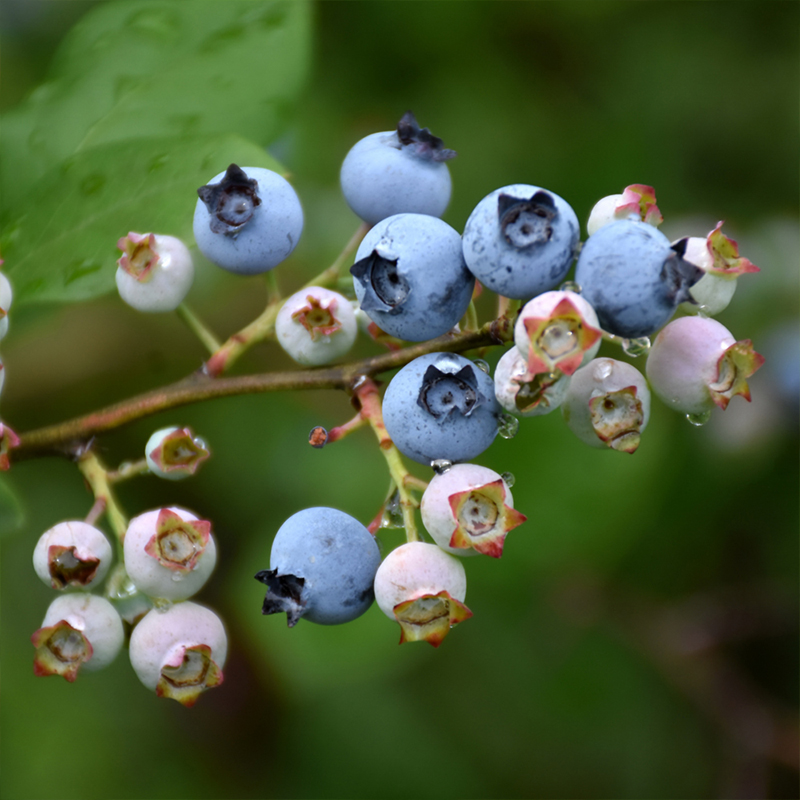You're shopping: DAVIDSONVILLE
(change store)
Fruit Trees and Fruit Shrubs - BLUEBERRY HIGHBUSH 3G

BLUEBERRY HIGHBUSH 3G
no reviews for this product. Login to place a review.
Your Price $59.99
Item Number 284226
In store quantity:
0
$59.99/ EA
Blueberry Highbush
3-Gallon
Height: 5-7 feet tall.
Spread: 4-6 feet.
Sunlight: Full sun to partial shade.
Hardiness Zone: 4a.
Other Names: Vaccinium corymbosum (Highbush Blueberry)
Description:
A classic northern highbush blueberry variety known for its large, flavorful berries and excellent cold hardiness. Highbush blueberries are one of the most widely cultivated types, producing abundant crops of plump, sweet fruit in mid to late summer. Their beautiful foliage, spring blooms, and vibrant fall color make them an excellent choice for both edible and ornamental landscapes.
Edible Qualities:
Blueberry Highbush produces medium to large berries with a well-balanced sweet-tart flavor. The fruit ripens in mid to late summer and holds well on the bush for an extended harvest period.
The fruit is most often used in the following ways:
- Fresh Eating
- Baking
- Smoothies
- Preserves
- Freezing
Features & Attributes:
Blueberry Highbush features dark green foliage throughout the growing season, turning brilliant shades of red and orange in the fall. In early spring, it produces clusters of delicate white, bell-shaped flowers that attract pollinators. Its upright, spreading habit makes it an excellent choice for edible landscaping and hedgerows.
This is a deciduous shrub with a strong, bushy growth habit. It is self-pollinating but benefits from being planted near another blueberry variety for increased yields.
Aside from its primary use as an edible, Blueberry Highbush is suitable for the following landscape applications:
- Edible Hedges
- Home Gardens
- Wildlife Gardens
- Ornamental Landscaping
Planting & Growing:
Blueberry Highbush will grow to be about 5-7 feet tall at maturity, with a spread of 4-6 feet. It has a low canopy with a typical clearance of 1-2 feet from the ground. It grows at a medium rate and, under ideal conditions, can be expected to live for 30 years or more.
This shrub thrives in full sun to partial shade and well-drained, acidic soil. It requires consistent moisture, particularly during fruit development, and benefits from an annual layer of mulch to retain soil moisture and regulate temperature. Light pruning after fruiting helps maintain its shape and productivity.
Additional Characteristics:
- Mid to Late Season Ripening
- Self-Pollinating (Improved Yields with Cross-Pollination)
- High-Yielding
- Cold Hardy
- Excellent Fall Foliage Color
